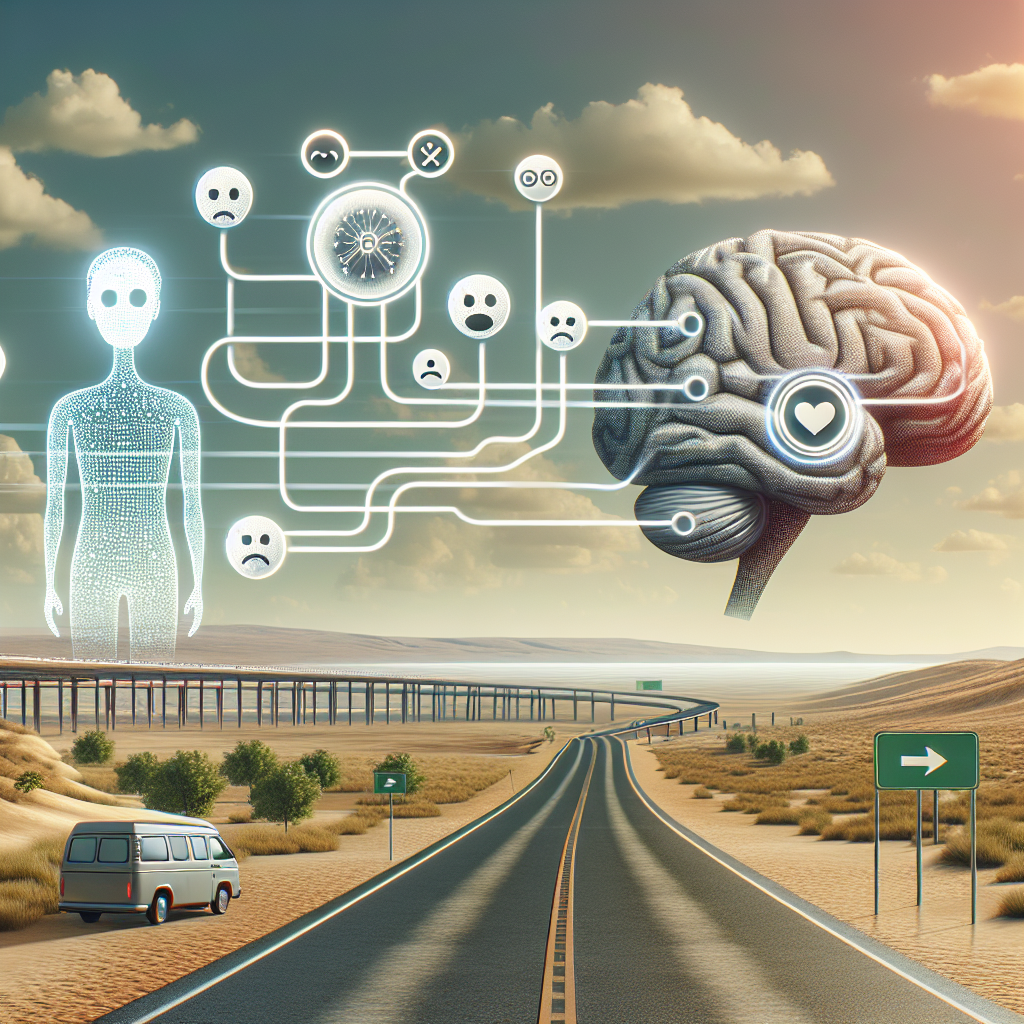The Impact of AI Personality on Learning: Considering Future Decision-Making
artificial intelligence (AI) has revolutionized various aspects of our lives, including education and learning. The concept of AI personality, where machines are designed to exhibit human-like characteristics, is gaining traction in the field of education. This article delves into the implications of AI personality on learning and its potential influence on future decision-making processes.
Introduction
The introduction sets the stage for exploring the Impact of AI personality on learning and future decision-making. As Artificial Intelligence (AI) continues to advance, its integration into education has become increasingly prevalent. This article aims to delve into the implications of AI personality in the realm of learning and how it may shape decision-making processes in the future.
Overview
In this section, we will provide a comprehensive overview of the concept of AI personality and its evolving role in education. By understanding the definition and importance of AI personality, we can grasp its significance in enhancing the learning process and facilitating future decision-making. Through examining the potential benefits and ethical considerations associated with AI personality, we can gain insights into its broader implications for the educational landscape.
AI Personality and Its Role
Artificial Intelligence (AI) personality refers to the design and implementation of human-like characteristics in machines. This concept aims to make AI more relatable and engaging for users, particularly in the field of education.
Definition of AI Personality
The definition of AI personality encompasses the integration of emotional, social, and cognitive traits into artificial intelligence systems. By mimicking human behavior and responses, AI personality enhances the interaction between machines and users, creating a more personalized and immersive learning experience.
Importance in Learning
The importance of AI personality in learning lies in its ability to foster deeper engagement and understanding among students. By incorporating human-like characteristics, AI can adapt to individual learning styles, preferences, and needs, thereby enhancing the overall educational experience. This personalized approach not only improves knowledge retention but also promotes critical thinking and problem-solving skills.
Learning Process with AI Personality
Artificial Intelligence (AI) personality has the potential to revolutionize the learning process by enhancing engagement and personalizing the educational experience. By incorporating human-like characteristics into machines, AI can create a more interactive and immersive learning environment for students.
Enhanced Engagement
One of the key benefits of AI personality in the learning process is its ability to enhance engagement. By making AI more relatable and interactive, students are more likely to stay focused and motivated during their educational activities. This increased engagement can lead to improved knowledge retention and a deeper understanding of the material being taught.
Personalized Learning
AI personality also plays a crucial role in personalized learning. By adapting to individual learning styles, preferences, and needs, AI can tailor educational content to suit the unique requirements of each student. This personalized approach not only helps students learn at their own pace but also encourages critical thinking and problem-solving skills.
Future Decision-Making with AI
As Artificial Intelligence (AI) continues to advance, its impact on decision-making processes is becoming increasingly significant. AI has the ability to analyze vast amounts of data and make predictions based on patterns and trends, a concept known as predictive analysis.
Predictive Analysis
Predictive analysis involves using AI algorithms to forecast future outcomes based on historical data. By analyzing patterns and trends, AI can provide valuable insights that can help in making informed decisions. In the realm of education, predictive analysis can be used to anticipate student performance, identify at-risk students, and recommend personalized learning paths.
Automated Decision-Making
Another aspect of future decision-making with AI is automated decision-making. AI systems can be programmed to make decisions autonomously based on predefined rules and algorithms. This can streamline decision-making processes, reduce human error, and increase efficiency. In education, automated decision-making can be used for tasks such as grading assignments, scheduling classes, and providing personalized feedback to students.
Ethical Considerations
When considering the integration of AI personality in education, various ethical considerations must be taken into account. These considerations encompass the potential impact on privacy and the presence of bias in decision-making processes.
Privacy Concerns
One of the primary ethical concerns surrounding AI personality in education is the issue of privacy. As machines collect and analyze data to personalize learning experiences, there is a risk of infringing on students’ privacy rights. It is essential to establish clear guidelines and protocols to ensure that sensitive information is protected and used ethically.
Bias in Decision-Making
Another critical ethical consideration is the presence of bias in decision-making processes facilitated by AI personality. Machines are programmed based on algorithms and data, which can inadvertently perpetuate biases present in the dataset. It is crucial to continuously monitor and address bias to ensure fair and equitable outcomes for all students.
Conclusion
In conclusion, the integration of AI personality in education has the potential to revolutionize the learning process and shape future decision-making. By incorporating human-like characteristics into machines, AI can enhance engagement, personalize learning experiences, and facilitate automated decision-making. However, ethical considerations such as privacy concerns and bias in decision-making must be carefully addressed to ensure fair and equitable outcomes for all students.



Comments